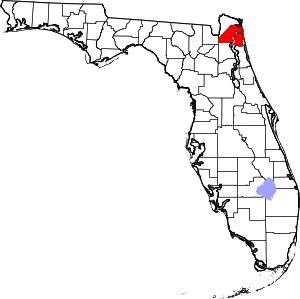Duval County Probate Process for Residents & Non-Residents
In Florida, probate is a court-supervised process in which a deceased person’s assets are identified and beneficiaries are determined. The probate process is designed to ensure that potential creditors have an opportunity to pursue claims against the estate, as well as provide a forum for identifying the correct beneficiaries to receive the decedent’s property.

Florida Probate Process
When someone passes away leaving a valid Last Will & Testament, anyone with possession of the Will must file the original document with the correct circuit court, aka probate court. The original Last Will & Testament and any probate pleadings will be filed in the county of last residence for the decedent. For example, if the decedent passed away as a resident of Jacksonville, then Duval County would be correct jurisdiction for a domiciliary probate proceeding. If there is no Last Will & Testament for the decedent, then any probate assets will be distributed according to the Florida intestacy statute, which provides a default distribution scheme for assets based on familial relationships.
In Duval County, the probate process is handled by the 4thJudicial Court. Depending on the petitioner’s address, the county will determine which courthouse the case is assigned to. There are two Clerk of Court office locations in Duval County:
- Downtown Courthouse – 501 W Adams St. #2379, Jacksonville, FL 32202
- Beaches Branch – 1543 Atlantic Blvd., Neptune Beach, FL 32266
Probate Assets

The first step in identifying probate assets is to confirm how the decedent’s real estate is titled, by visiting the Duval County Property Appraiser. If the property appraiser report and most recent deed confirm that the real estate, aka real property, is in the sole name of the decedent, then a probate will be required in order to eventually sell or transfer the property. Often the goal is to sell the piece of real estate during the probate process, and to have to proceeds divided among the identified beneficiaries. It is advisable to wait until an estate is open, and a personal representative is appointed before executing any type of sales contract.
The second step for identifying probate and non-probate assets is to check the mail of the decedent, since financial institutions and insurance companies will periodically send correspondence regarding accounts. The personal representative of the estate, or the immediate family members of the decedent, should have the decedent’s mail forwarded to a convenient location by requesting a change of address or mail forwarding with the United States Postal Service. The request can be made on the UPSPS website, or in person at a branch location.
Restricted Depositories
When it comes to sale of real property in estates and guardianships, all judges assigned to the 4thJudicial Court (Duval County) will not accept a will before the death of the person who holds authority over the will. Within 10 days after death, the will should be deposited with the Clerk of Court in Duval County where the decedent lived on the day they died.
Consult with an experience Duval County probate attorney for the best techniques for establishing a restricted depository and expediting the administration.
Ancillary Probate for Non-Residents
Ancillary probate refers to a secondary probate proceeding that takes place in any state other than the domiciliary state. Ancillary probate is necessary to transfer or sell real estate, aka real property, located in any state other than the decedent’s domiciliary state.
After someone passes away, the first step in the probate process is to establish the domiciliary estate in the decedent’s state of residence. Once a personal representative, or executor is appointed for the domiciliary proceeding, the next step is to petition to initiate the ancillary probate in the county in which the real estate is located.
As an example, John lives in Texas but owns a vacation home in Jacksonville Beach. When John passes away, his Last Will & Testament must be submitted to his local probate court in Texas to begin the domiciliary probate process. A second probate process must also be started in Duval County, Florida to transfer the home in Jacksonville Beach to his beneficiaries, or to clear title to a new owner via the sales process.
Generally, ancillary probate administration is required in Florida when someone who was not a Florida resident dies and:
- Owned Florida real estate
- Owned a Florida timeshare
- Owned Florida property or liability that would require the signature of an appointed personal representative in Florida for transfer, collect, or discharge
Ancillary probate in Duval County, Florida can complicate the already time-consuming and sometimes costly probate process, but it is the only way to pass Florida real estate to the rightful beneficiaries. Because ancillary probate has the potential to prolong the domiciliary probate proceeding, it’s crucial to work with a skilled Florida ancillary probate attorney.
An experienced ancillary probate lawyer in Duval County can assist with every step of the probate process, and potentially serve as a personal representative to prevent potential delays and finalize the probate as quickly and smoothly as possible.
If you need assistance with probate in Duval County, Florida, contact the Florida Probate Law Firm for help through every step of the process at (561) 210-5500.

The Florida Probate Law Firm proudly serves all municipalities in Duval County, FL
- Atlantic Beach
- Jacksonville
- Jacksonville Beach
- Neptune Beach
If you need assistance with probate in Duval County, Florida, contact the Florida Probate Law Firm for help through every step of the process at (561) 210-5500.


